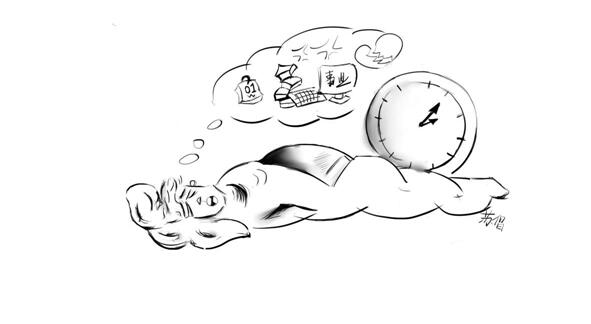Why do people sleep and why do they dream? Since ancient times, we have all believed that dreams have the ability to give mankind the ability to analyze future misfortunes and blessings.
With the development of science, people’s curiosity about dreams has led to more and more researches on dreams. A study in 1977 showed that dreams are produced by changes in neuron activity. This neuron change occurs in fast wave sleep (referred to as REM sleep, which is the last stage of sleep, during which the sleeper’s muscles are completely paralyzed. It is difficult to wake up) during which the brain stem is activated.
Not long ago, Italian researchers invited 65 students to participate in an experiment. The researchers divided them into two groups. Among them, 35 subjects were awakened midway after going to sleep, and the other 30 subjects experienced REM. Wake up naturally after complete sleep.
The results show that only students who have experienced complete sleep and natural awakening can clearly remember the content of their dreams. Also studies have shown that the neural activity of the brain during REM occurs in the frontal cortex of the brain, which happens to be the same place where the neural activity of retrieving memory occurs when we are awake.
These findings indicate that the neurophysiological mechanism we use when dreaming is the same as the mechanism we use to retrieve memory when we are awake. Dreams are the embodiment of our memories of past events when we sleep.
So why do we recall things during sleep? In another set of experiments, researchers found that about 90 minutes of nap including REM sleep period can significantly alleviate negative emotions such as anger and fear and make people feel happy.
Such research results show that during the time interval of waking up during the day, human emotions are not static. When the expression of negative emotions will become more and more obvious, a sleep containing dreams can reverse this accumulation of negative emotions. tendency.
Dreams that occur during REM sleep can weaken negative emotions and also contribute to the growth of positive emotions. The above studies have shown that sleep, especially REM sleep, may be a key factor in controlling emotions and promoting the regulation of brain emotions to the best steady state.
From this we learned that dreams can help us deal with emotions by constructing situational memories. The scenes we see and the feelings we experience in our dreams are not necessarily true, but the emotions attached to these experiences are true.
These scenes that appear in dreams are often made up of memory fragments refracted by real events in real life. These memory fragments are some events that we could not deal with in time emotionally.
Our dreams deal with our indigestible emotions at the time by constructing certain situational memories, including excessive desire, regret, anger and anxiety, etc., so as to finally relieve us and achieve the purpose of alleviating negative emotions.
In summary, complete sleep is particularly important for personal emotional expression. So, who are reading this article now, do you still want to stay up late?






